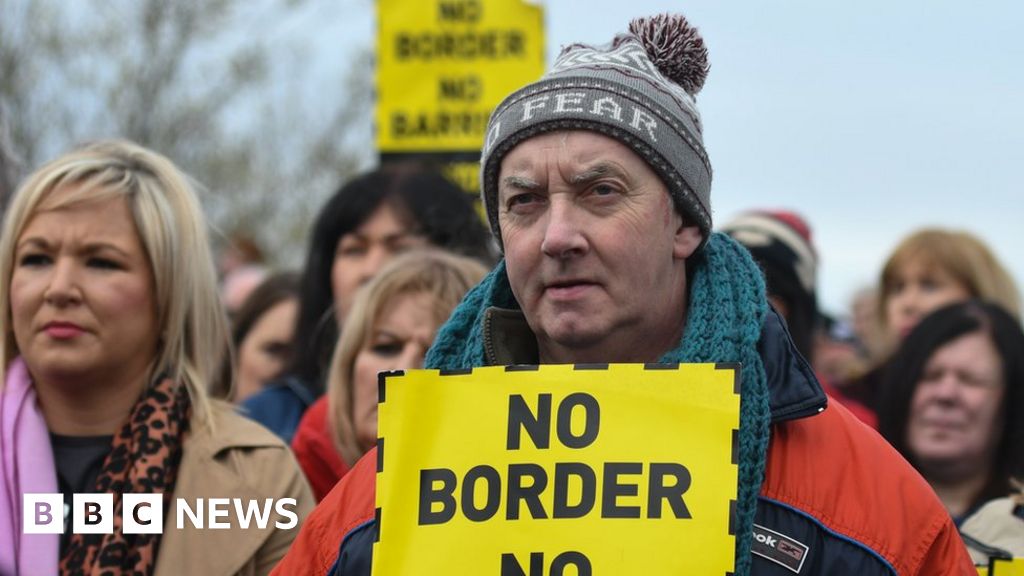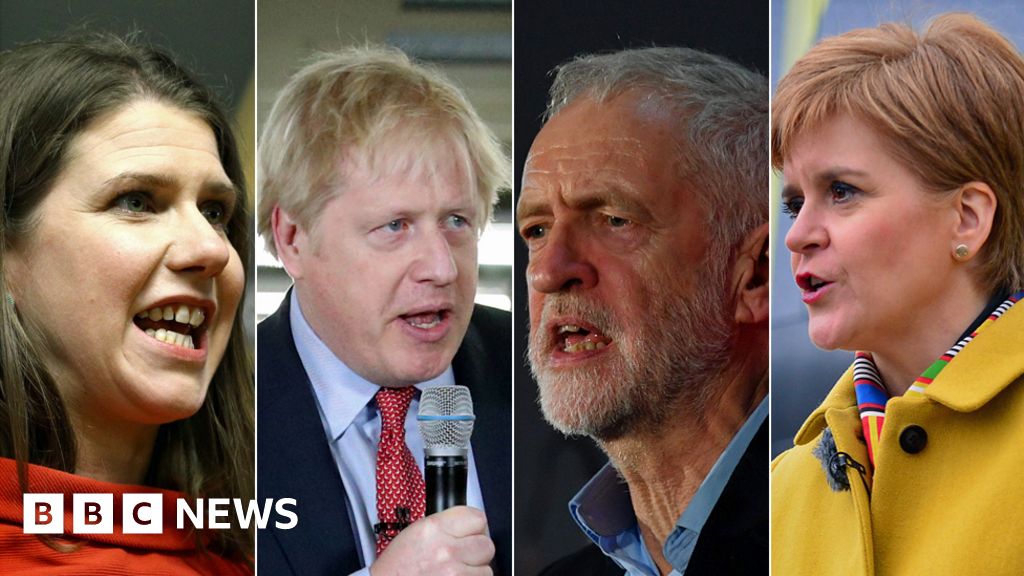WASHINGTON — Donald Trump and his allies have predicted the president will see a similar impeachment outcome as former President Bill Clinton did: an acquittal in the Senate, a subsequent spike in popularity, and a backlash against the opposing party in the following elections.
Yet, two months into the process, it’s become clear that an expectation of Clinton's results hasn't translated into an embrace of his tactics. Trump isn’t following the Clinton playbook, the strategies that helped his predecessor weather the impeachment process — a reality that's frustrated and sparked concern among even his biggest defenders.
For much of Clinton’s impeachment hearings, his approval ratings were in the 60 percent range. They hit the highest point of his presidency at 73 percent approval following his impeachment trial in the Senate, according to Gallup.
Trump, on the other hand, has seen his approval rating stuck in the low-40s, with no sizable shift in public support in his favor since the impeachment process began. Despite Trump’s near-daily attacks on the inquiry, the public has remained split over whether he should be impeached and removed from office, with stronger voter support for that prospect than Clinton ever faced.
The divergent strategies are one factor that could explain the differing results, at least so far. Here are a few of the ways that the Clinton and Trump responses contrast:
Into vs. above the fray
While Trump rarely goes more than a few hours without weighing in on the impeachment inquiry, Clinton’s strategy was to appear above the impeachment fray, a figure too busy working on behalf of the American people to spend his days focused on the investigation by Ken Starr or the impeachment proceedings that followed.
To do that, he left it to his lawyers and television defenders, such as James Carville and Lanny Davis, to combat Republicans and only addressed the controversy in key moments.
It’s the same advice Clinton has said he would give Trump today.
“My message would be, look, you got hired to do a job, you don’t get the days back you blow off. Every day is an opportunity to make something good happen,” Clinton said in an interview with CNN anchor Jake Tapper on Nov. 14. “I would say, ‘I’ve got lawyers and staff people handling this impeachment inquiry, and they should just have at it. Meanwhile, I’m going to work for the American people.’ That’s what I would do.”
Even Trump’s allies have pleaded with him to follow the Clinton model here, leveraging the Oval Office backdrop to foster the image of a president hard at work, not like one spending his days fuming on Twitter and watching cable news.
“President Clinton defended himself but he never stopped being presidential,” Sen. Lindsey Graham, R-S.C., told reporters earlier this fall of the Clinton White House. “... The public may not have liked what the president had done, but believed that he was still able to do his job, and as he governed during impeachment, I think that was the single best thing he did.”
There have been moments when it seemed Trump was listening to the advice of supporters like Graham.
He spent much of the first day of public impeachment hearings meeting at the White House with Turkish President Tayyip Recep Erdogan, with press secretary Stephanie Grisham saying he was “too busy” to watch the testimony.
During the second week of the hearings, as his ambassador to the European Union, Gordon Sondland, implicated him in a quid pro quo — alleging he had looked to pressure the Ukrainians to investigate his political rival, former Vice President Joe Biden, and his son Hunter — Trump toured an Apple manufacturing plant, talking about jobs.
But the presidential moments have been short-lived — and throughout, it has been clear Trump has been watching the proceedings.
Trump tweeted a real-time attack on the former U.S. ambassador to Ukraine, Marie Yovanovitch, in the middle of her testimony, causing Democrats to accuse him of witness intimidation. During a break in testimony last week, he reenacted to reporters testimony by Sondland that he argued had exonerated him, using notes he’d scrawled in black marker from the televised hearing. A day later, he gave an interview to Fox News where he denied all wrongdoing, insulted witnesses, and doubled down on conspiracy theories around Ukraine.
Let our news meet your inbox. The news and stories that matters, delivered weekday mornings.
“I have sinned” vs. a “perfect call”
Clinton, while denying he committed perjury and obstruction of justice, eventually issued a public apology for his affair: he had “sinned,” he said, asking for forgiveness and apologizing for the hurt he’d caused his family and the American people. The apology came after Clinton admitted to the relationship with former White House intern Monica Lewinsky in videotaped grand jury testimony.
It was a point his lawyers even emphasized in their opening statement before the Senate when arguing he doesn’t deserve to be impeached.
“The president wants everyone to know — the committee, the Congress, and the country — that he is genuinely sorry for the pain and the damage that he has caused and for the wrongs that he has committed” White House special counsel Gregory Craig said on the first day of Clinton’s impeachment trial.
Trump, on the other hand, has repeatedly denied there was anything wrong with asking the Ukrainian president to investigate his political rival, saying around 200 times so far that his call at the center of the impeachment inquiry was “perfect.”
The lack of apology and remorse makes it difficult for his defenders, said Lanny Davis, who acted as the primary public spokesman for Clinton
“We had one situation where I, on television, was able to say President Clinton has acknowledged his mistake, apologized to the American people and went before the grand jury,” Davis said. “I could not have made that statement for President Trump."
Trump has instead swatted down any suggestion he may have acted inappropriately in any way — and encouraged his defenders to do the same, even as some Republicans in Congress have suggested it was inappropriate, though not impeachable, to ask the Ukrainian president for such a favor.
“The call to the Ukrainian President was PERFECT. Read the Transcript! There was NOTHING said that was in any way wrong,” Trump said in a tweet Nov. 10. “Republicans, don't be led into the fools trap of saying it was not perfect, but is not impeachable. No, it is much stronger than that. NOTHING WAS DONE WRONG!”
War room vs. “I’m the team”
Clinton assembled a team of aides and outside advisers singularly focused on impeachment to help free up White House staff to carry on with their daily duties and try to minimize the distraction the process created internally.
The Clinton team tasked a handful of people to serve as his public defenders to help keep the messaging focused, said Davis, a former White House counsel who was one of those surrogates.
Davis said he went on television almost daily during some periods, and would consult regularly with the White House lawyers and the political advisers on his message. He kept the talking points focused on the idea that what Clinton did was a personal matter, not an abuse of the office, and between him and his family.
“We had a very simple message based on facts," said Davis, while Trump's defenders "are in an impossible situation. They have my sympathy. ... They don’t have a message based on facts, so they are all over the place.”
Trump has dismissed the idea of a need for a so-called war room or dedicated staff to battle impeachment.
“I don’t have teams. Everyone’s talking about 'teams.' I’m the team. I did nothing wrong,” Trump told reporters Oct. 25.
But the White House and its surrogates have struggled to settle on a clear, consistent defense. Their messaging has instead been notable for headline-grabbing stumbles, such as acting chief of staff Mick Mulvaney's need to walk back his statement, made during a press briefing, that security funding to Ukraine was linked to the country committing to investigate 2016 election interference.
As the impeachment process moved into the public sphere this month, the White House brought in former Treasury spokesman Tony Sayegh and former Florida Attorney General Pam Bondi to help direct the messaging efforts. But the White House still lacks an individual solely focused on impeachment who reports directly to the president.
Instead, there has been internal infighting, with a rift between Mulvaney and White House counsel Pat Cipillone over who should be taking the lead on guiding the strategy, according to sources familiar with the situation.
Discredit, dismiss
On the other hand, there has been at least one area in which the Trump and the Clinton strategies have overlapped: their attempts to discredit and dismiss the investigation itself, the officials directing it and the individuals conducting it.
Clinton’s team made a villain out of independent counsel Ken Starr, looking to paint him as a “prissy, partisan, pompous prosecutor," James Carville said during a speech last month. Starr fought back, at times grabbing the impeachment probe spotlight himself and distracting attention from Clinton.
"Of course, he played right into it and I had more fun slapping Ken Starr around than almost anything I've ever done in my life,” Carville said.
Trump has sought to do the same with House Speaker Nancy Pelosi, D-Calif., and House Intelligence Chairman Adam Schiff, D-Calif. He’s chucked one insult after another at them, calling them “human scum,” making fun of Schiff’s neck size, referring to Pelosi as “crazy Nancy,” and calling her congressional district a “disgusting slum.”
And the Clinton team, like Trump’s surrogates, sought to downplay the charges made against them.
“We trivialized the charge — 'You're looking to do this over that? Come on, guys?’” Carville said.
Trump’s allies have sought to make a similar argument. Even those Republicans who say it was improper for Trump to ask a foreign government to dig up dirt on a political rival have argued it wasn’t an impeachable offense. Others have proposed that the fact that Ukraine ultimately received the delayed aid, amid a congressional outcry, means that there is no longer an offense to investigate.
"Concern is different than rising to the level of impeachment," Rep. Tom Cole, R-Okla., told NBC's "Meet the Press" last month. "I look at it this way: The aid is there and the investigations didn't happen. So, if there was a quid pro quo, it certainly wasn't a very effective one."
Then again, that's another Clinton-era argument — that the president's actions may have been flawed in some fashion, but not fatally — that Trump himself has remained unwilling to embrace.
“I always say," Trump asked at a campaign rally last month, "how do you impeach a president who didn't do anything wrong?”
Let's block ads! (Why?)
https://news.google.com/__i/rss/rd/articles/CBMib2h0dHBzOi8vd3d3Lm5iY25ld3MuY29tL3BvbGl0aWNzL3RydW1wLWltcGVhY2htZW50LWlucXVpcnkvdHJ1bXAtY2h1Y2tzLWNsaW50b24tcy1pbXBlYWNobWVudC1wbGF5Ym9vay1uMTA5MTYyMdIBLGh0dHBzOi8vd3d3Lm5iY25ld3MuY29tL25ld3MvYW1wL25jbmExMDkxNjIx?oc=5
2019-12-08 12:01:00Z
52780451907398






